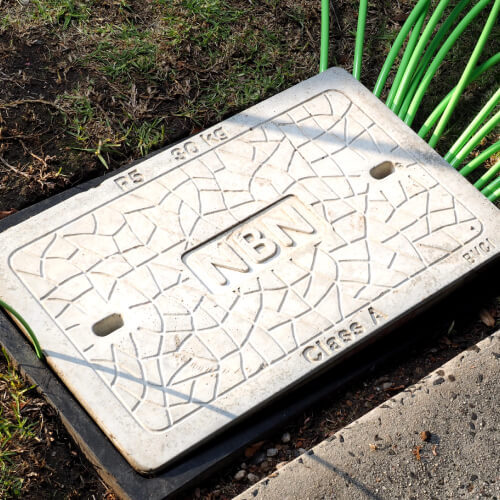NBN's fixed wireless access, satellite networks get $555M boost
The Australian federal government says it will tip a further A$480 million into the national broadband project, with NBN Co. adding another A$270 million.

Australia's NBN will get a A$750 million (US$555 million) boost to upgrade fixed wireless and satellite networks.
The federal government announced Tuesday that it will tip an extra A$480 million into the national broadband project, with NBN Co. adding another A$270 million.
Communications Minister Paul Fletcher said that the upgrades mean up to 1 million premises in regional and remote areas will have access to faster FWA speeds or higher satellite data limits.
Figure 1:  The upgrade means all FWA customers will be able to access speeds of up to 100 Mbit/s.
The upgrade means all FWA customers will be able to access speeds of up to 100 Mbit/s.
(Source: STRINGER Image/Alamy Stock Photo)
The fresh investment comes as NBN has just completed its initial rollout, connecting 8.4 million premises mostly with a mix of copper, fiber and HFC. Together, FWA and satellite account for around 10% of connections, mainly in rural areas.
It is also just two months before a national election, with the NBN project continuing to attract controversy because of its high cost and moderate performance. Despite the scale of the rollout, backed by A$27 billion in government loans, Australia ranks 65th in the Speedtest global index.
Need for speed
NBN Co. said that it would use the new funding to "5G-enable its network of more than 2,200 fixed wireless infrastructure sites and more than 22,000 cells in semi-rural areas and across regional and remote Australia."
The upgrade means that all FWA customers will be able to access speeds of up to 100 Mbit/s, with 250 Mbit/s available to 85% of customers, Fletcher said.
The NBN fixed wireless footprint will expand by up to 50%, enabling an extra 120,000 premises to convert to FWA from the congested Sky Muster satellite service. This would reduce Sky Muster's load and allow it to raise its monthly data caps.
The FWA upgrade was a recommendation of the recently completed independent review of regional telecommunications. The government says that further measures will be announced in coming weeks.
Timing is everything
Consultant Paul Budde said that with the election looming, it was predictable that the government would put more cash into the "under-performing" NBN.
He said that the extra cash would certainly address the main shortcoming of the fixed-wireless and satellite networks, which was their lack of capacity.
While this is good news for regional consumers "desperately waiting for better NBN services," he cautioned that additional capacity could quickly be absorbed "if people take up the opportunity and will use these networks more, which I most certainly expect."
"Because of the often poor service, usage has been relatively low among those users as they couldn't be bothered with the slow services they received. These people are going to use the NBN more and for higher quality services," he said.
Want to know more? Sign up to get our dedicated newsletters direct to your inbox.
He said that the regional review noted that the NBN needed to tackle the underlying strategic issues of rural broadband services.
"Just throwing money to the network is not enough. We need to much better map the blackspots, the uncovered areas, the marginal areas of the service footprints," he said.
Budde said that the extra investment meant NBN's Sky Muster satellite service would be more competitive against LEOsat services such as Starlink, which is about to launch commercial service (see Telstra, OneWeb cue LEOsat partnership for Australia and Pacific).
"The upgrades will start reaching the speed levels of the LEOs at much lower costs, so customers will vote with their wallets."
Related posts:
— Robert Clark, contributing editor, special to Light Reading
Read more about:
AsiaAbout the Author(s)
You May Also Like




_International_Software_Products.jpeg?width=300&auto=webp&quality=80&disable=upscale)







